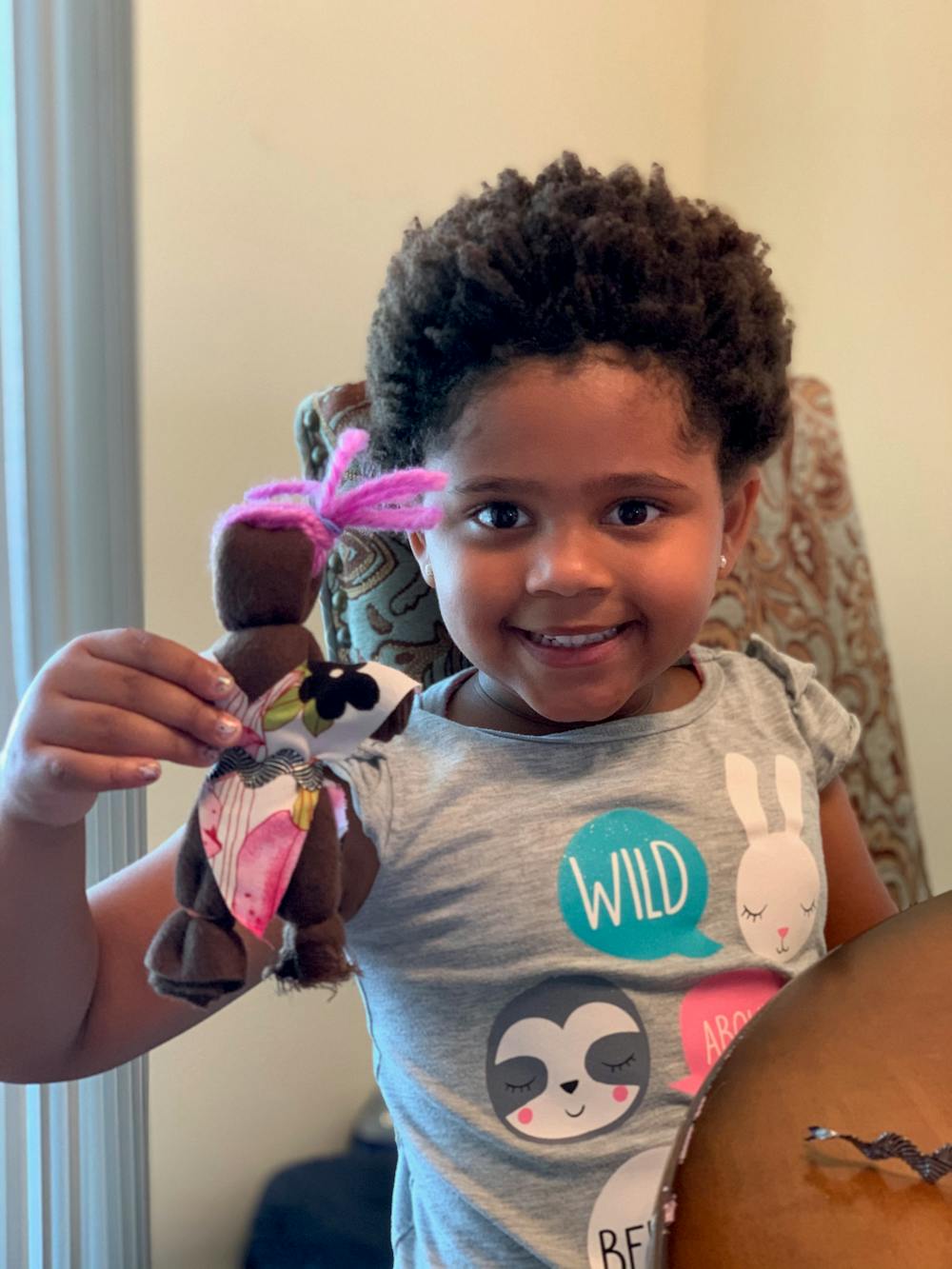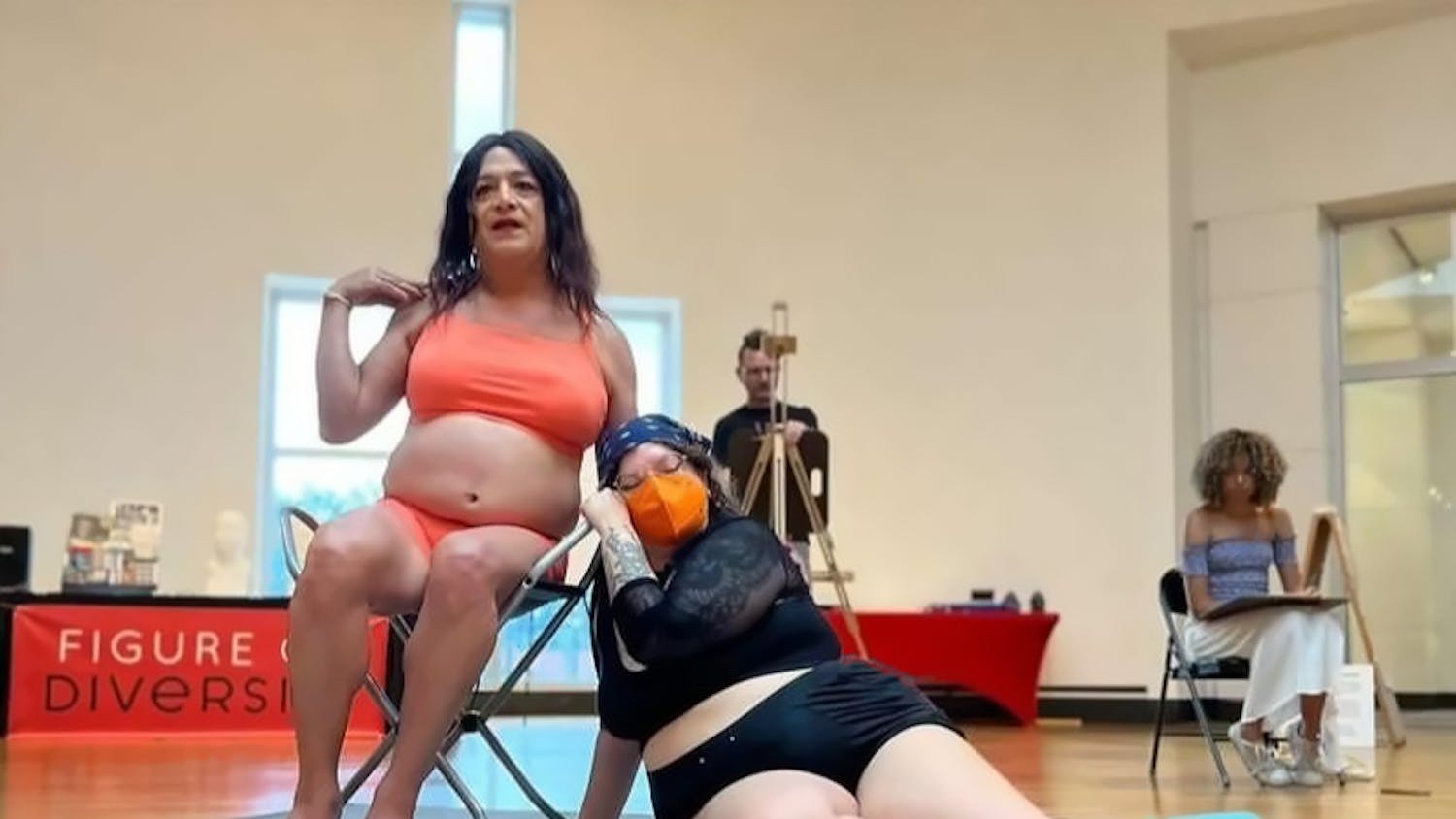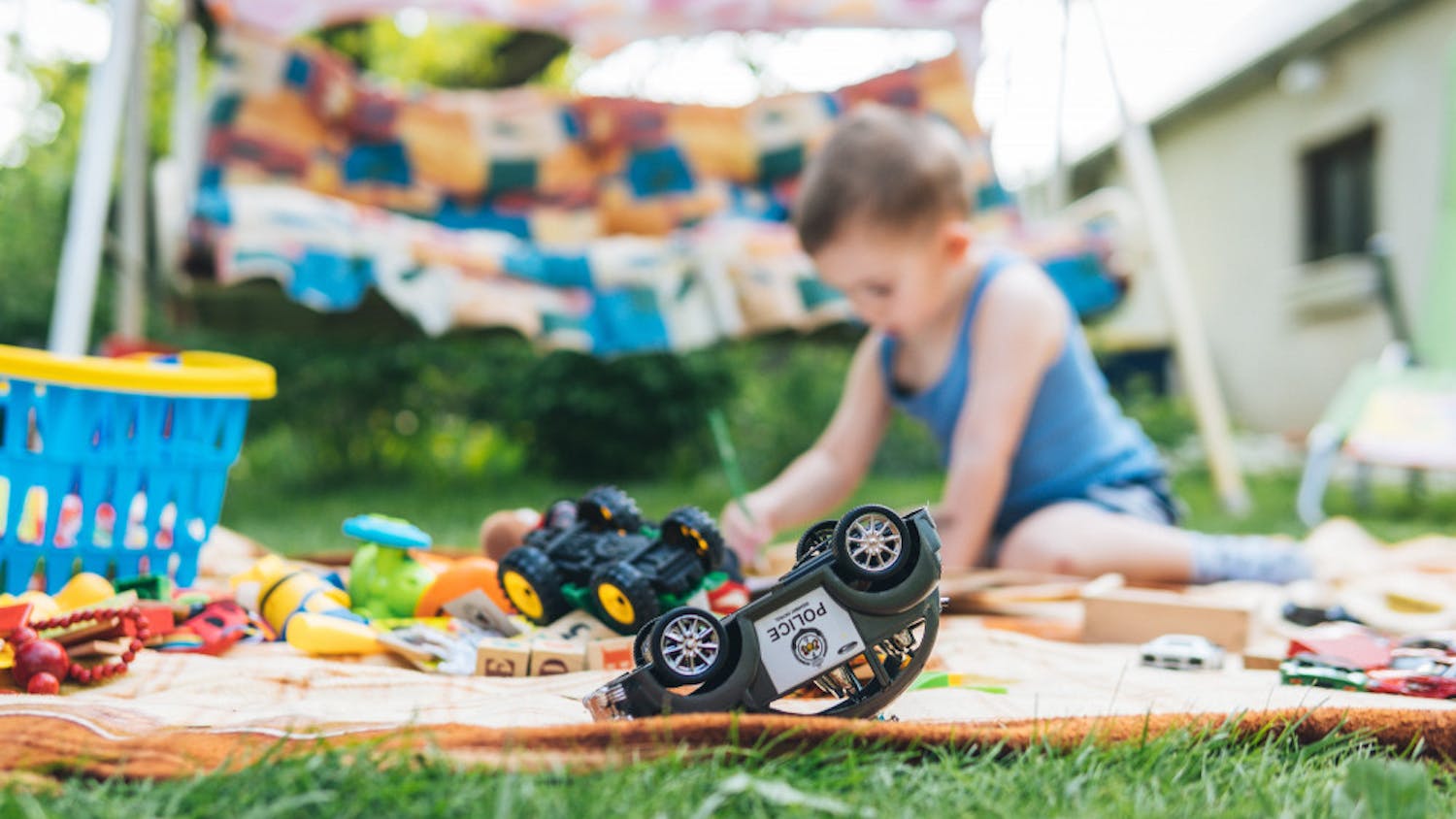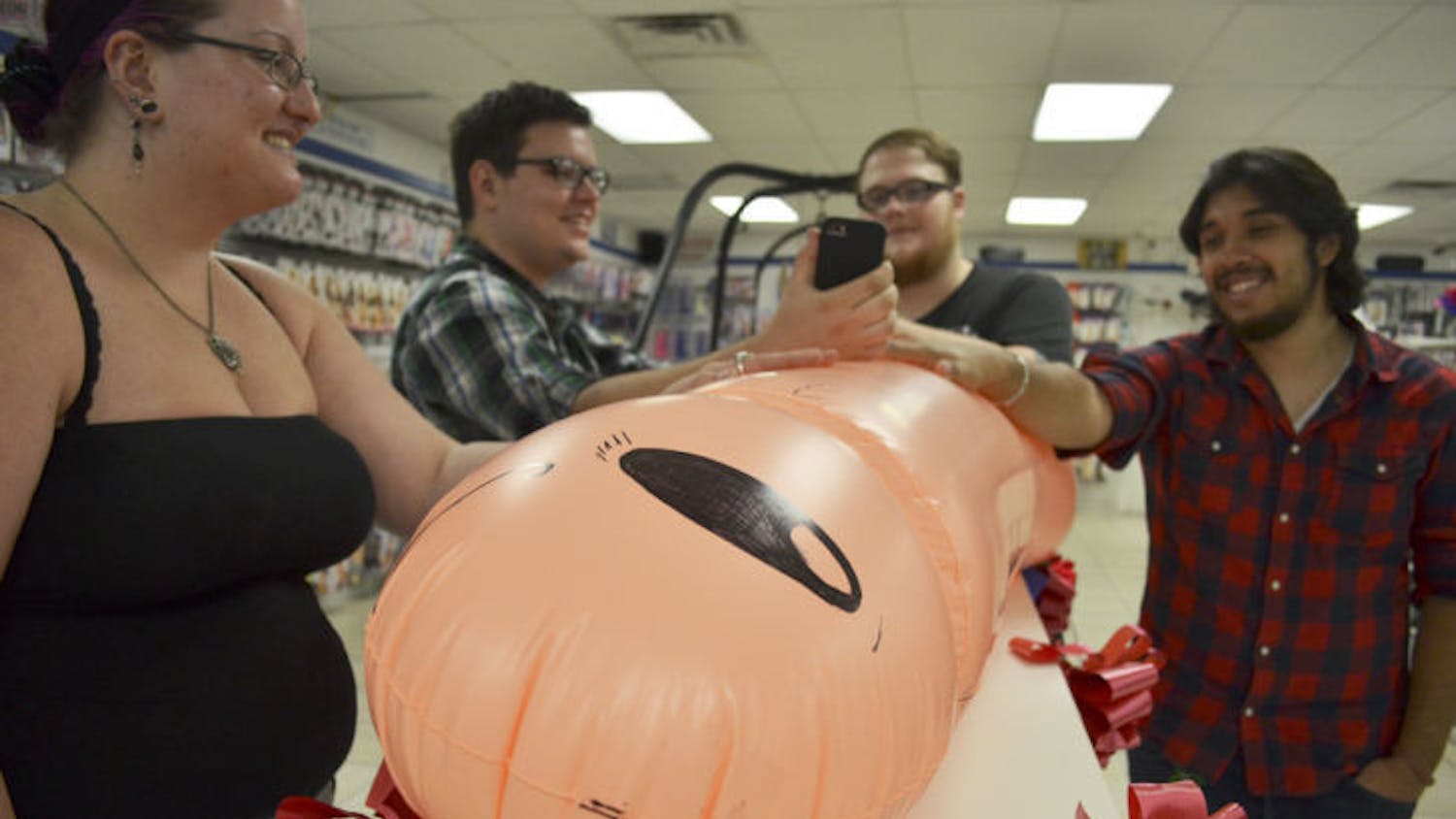For the first time, four-year-old Madeline Exavier can hold a Brown doll close to her. Like Exavier, Dolly has a dark complexion and short pink hair that resembles Exavier’s afro. Every playtime, her original Rad doll is the first toy Exavier reaches for.
Through her nonprofit, Wayfaring Painter, director and Teaching Artist Kristyn Lopez, provides art workshops in Alachua County. These include community art classes in 10 libraries, weekly preschool class at Working Food and even birthday parties.
Despite the pandemic, Lopez created Rad Doll Kits three weeks ago to stay in contact with the art community. She opened sales June 20, and through the Youth Development Research Practice Partnership and the Black Parents Support Network, she will donate 250 kits to Black and marginalized families this week. The sale of 50 kits will fund the donation; however Lopez has only sold about 20, so the additional costs are out of her pocket.
Each kit contains two skin tones of felt, four colors of yarn for hair, beads and buttons for eyes as well as ribbons and embellishments. The fabric included in the kits is donated or recycled from the Repurpose Project.
In efforts to thwart gender constructs, Lopez gives her son Angelo dolls and an array of toys. Even still, he usually ops for a truck and action figures, she said. This time, after he formed a doll with long hair that matches his, he kept it around.
While every kit has two skin color options, Lopez bought four fabrics for skin. Each family will receive different skin tones. The four felt colors range from chocolate brown, coppery brown, dark tan and beige. Lopez aimed to provide a diverse set of dolls, in contrast to those in stores, she said.
“I was thinking about how as an art teacher, I can provide an activity for all families to address issues of race in a way that's comfortable and approachable,” she said. “Toys, I think, are a big place where there is a lot of disparity of kids seeing representation.”
Growing up as a Hispanic woman, Regla Exavier recalls crying over never finding a doll similar to her, she said. Now, her mixed daughter faces the same exclusion.
“I remember how frustrated I felt because I just thought, all these little girls have the whole American Girl doll experience and I was like, she can't have that right now because none of these dolls look like her,” Exavier said about Madeline.
Even though she is 4, Exavier said that her daughter always talks about skin color. As one of the only Brown children in her classes, Madeline recognizes the stark difference.
Exavier showed three shades of brown crayons to Exavier in representation of her, Madeline and Madeline’s dad to explain race.
“We have to constantly be reinforcing the idea that everything about her is beautiful and just because the dolls in the stores or the toys in their stores don't look like her, doesn't mean that she's not beautiful,” Exavier said.
Because Madeline has dark skin, Exavier has to explain racial discrimination to her young daughter, Exavier said. According to Exavier, the Rad doll was the perfect segway.
“I did tell her that sometimes people are going to have a problem with the color of your skin,” Exavier said. “And I said, ‘but that doesn't determine who you are and know that there's a problem with them not with you.’”
To Nadia Wesley, a volunteer with the project, inclusion and representation is essential.
“It should be normal for parents to get dolls of different colors for their kids because that's what the world is like,” Wesley said. “If you start early showing them how the world really is, it will make them more likely to stand up and talk.”
During the pandemic, families that pay for classes are also able to purchase the dolls. Lopez wants to donate to families who do not have the facilities to do so, she said.
“My goal for my nonprofit is to make art as accessible as possible to everyone,” she said. “I think that the barriers for people of color in accessing high-quality art instruction is a part of systematic racism."
Lopez’s hope is that little girls and boys can cling to a toy that looks like them, like Madeline, and feel special and loved.

Katie Delk is a sophomore with a journalism major and an anthropology minor. For the Avenue, she writes about music, culture and the environment. When she is not writing, she is outside with the trees, reading a fantasy book or listening to Beach House.






